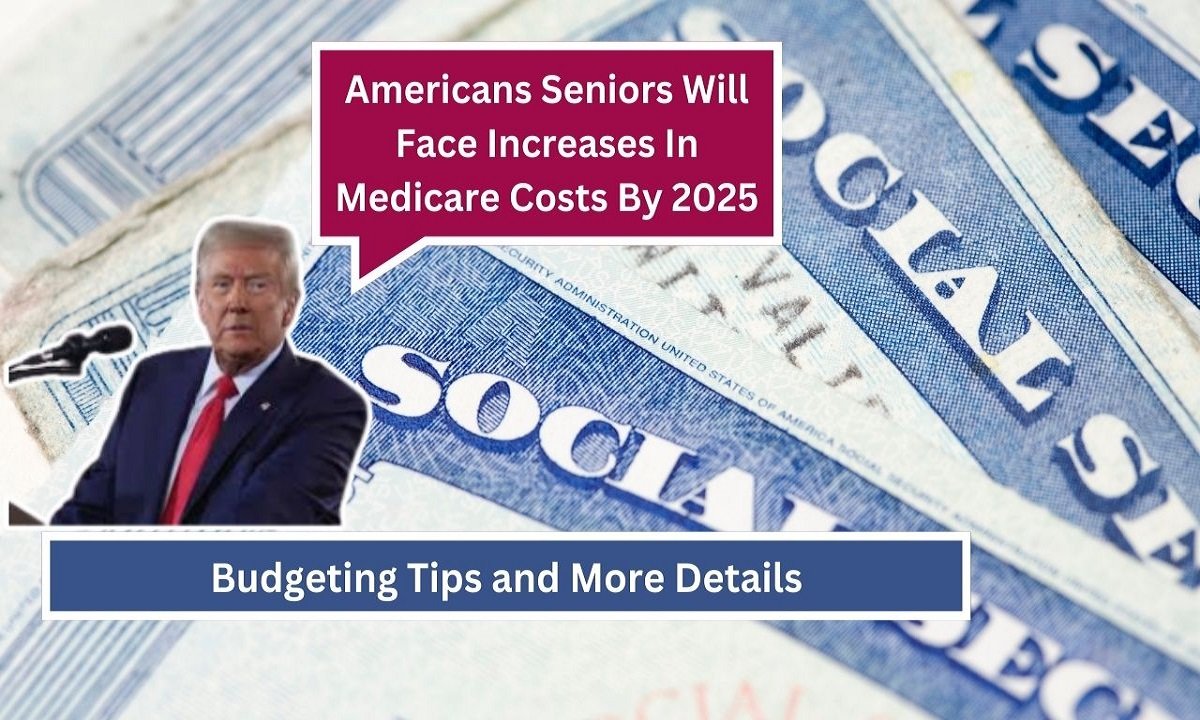If you’re a senior in the U.S. or you know someone who is, the news about Medicare costs rising by 2025 might leave you feeling a little uneasy. But don’t worry, you’re not alone in this. Medicare is a lifeline for millions of older Americans, and any changes in its costs can have a significant impact on household budgets. In this article, we’ll break down what you need to know about these increases, why they are happening, and most importantly, how to plan for them without breaking the bank.
What Is Medicare and Why Is It Important for Seniors?
Medicare is a federal health insurance program that helps seniors over the age of 65 cover the costs of healthcare. It helps pay for doctor visits, hospital stays, medications, and other health services. For many seniors, Medicare is a vital part of staying healthy and managing their medical needs as they age. It’s not free, though. Seniors pay premiums, deductibles, and co-pays for the services they use.
Why Are Medicare Costs Going Up?
You might be wondering, “Why are Medicare costs rising in the first place?” Well, there are a few reasons.
One of the main reasons is the rising cost of healthcare overall. As medical technology improves, and as the aging population grows, healthcare becomes more expensive. More people are using Medicare, and that means the government has to spend more to keep up with demand.
Another factor is inflation. Everything is getting more expensive, from groceries to healthcare. As the cost of goods and services increases, Medicare costs are also adjusted to keep pace with these changes.
How Will Medicare Costs Increase by 2025?
By 2025, many seniors will see a rise in premiums, deductibles, and copayments for Medicare. This includes the standard monthly premium for Medicare Part B (which covers doctor visits and outpatient care) and Part D (which covers prescription drugs). This could also mean higher costs for hospital stays and other services.
The exact amount of the increase isn’t clear yet, but experts predict that Medicare’s cost-sharing requirements could increase as healthcare costs continue to rise. The government might also reduce the amount of coverage for certain services, meaning seniors could pay more out of pocket for medical care.
Budgeting Tips to Prepare for Higher Medicare Costs
While it’s impossible to avoid the rising costs, there are some smart ways to prepare and make sure you don’t get hit too hard. Here are a few practical budgeting tips:
Start by reviewing your current Medicare plan.
Are you on the best plan for your healthcare needs? Sometimes seniors don’t realize that they can switch plans or make adjustments. Take a look at what each plan covers and compare it to your needs. You might find that a plan with a higher premium but better coverage could save you more in the long run.
Set aside an emergency fund.
Life is unpredictable, and health expenses can pop up when you least expect it. Setting aside a separate fund for healthcare expenses can help take the edge off any unexpected medical bills. Even if you can only save a little each month, it’s better to have something in reserve than to be caught off guard.
Explore assistance programs.
Did you know that there are programs to help seniors with healthcare costs? Programs like Medicaid, the Low-Income Subsidy (LIS) for prescription drugs, or even programs from private companies can offer financial assistance. If you’re eligible, these can significantly reduce out-of-pocket costs. Be sure to check if you qualify for any of these programs and take full advantage of them.
Plan for preventive care.
One way to save on healthcare costs is to stay healthy in the first place. Routine check-ups, vaccines, and screenings can catch health problems early, before they turn into expensive treatments. Medicare covers many preventive services for free, so make sure you’re taking full advantage of them.
Reevaluate your lifestyle choices.
It might not seem like a direct way to save money on Medicare, but maintaining a healthy lifestyle can keep you from needing expensive treatments. Eating well, exercising, and avoiding smoking or excessive drinking can keep your body in good shape and your medical costs down.
What to Expect in the Coming Years
The next few years will likely bring even more changes to the Medicare system. It’s important to stay informed and proactive when it comes to your healthcare planning. Monitor any news or updates from the Centers for Medicare & Medicaid Services (CMS), and consult with a financial advisor or healthcare professional who can help guide you through these changes.
Conclusion
Medicare is an essential resource for seniors, but with costs expected to rise by 2025, it’s crucial to plan ahead. By staying informed, reviewing your current plan, and using smart budgeting strategies, you can reduce the impact of these increases on your finances. While the future of Medicare may be uncertain, taking proactive steps today can help ensure you’re ready for whatever comes next.
FAQs
Why are Medicare costs increasing?
Medicare costs are increasing due to rising healthcare expenses, inflation, and an aging population requiring more healthcare services.
How can I lower my Medicare costs?
Review your plan regularly, switch to a more suitable option, and explore assistance programs like Medicaid or the Low-Income Subsidy for drug costs.
What is the best way to prepare for higher Medicare costs?
Start by saving for unexpected medical expenses, and take advantage of preventive care services that Medicare offers.
Will all seniors see the same increase in costs?
No, the cost increase will vary based on the plan you have, the services you use, and any additional coverage you may have.
Can I change my Medicare plan?
Yes, you can change your Medicare plan during specific enrollment periods if you find a plan that better suits your healthcare needs.




